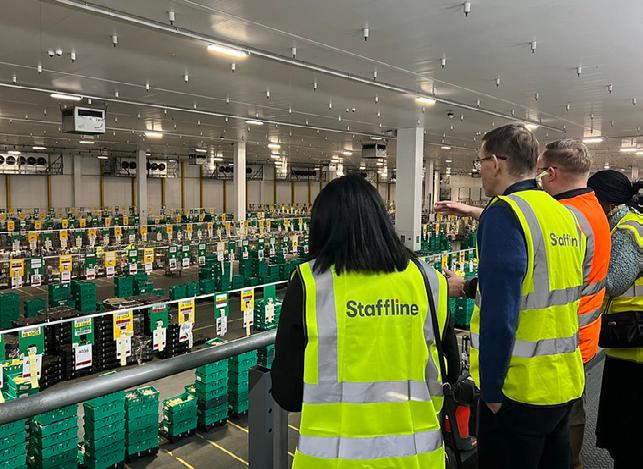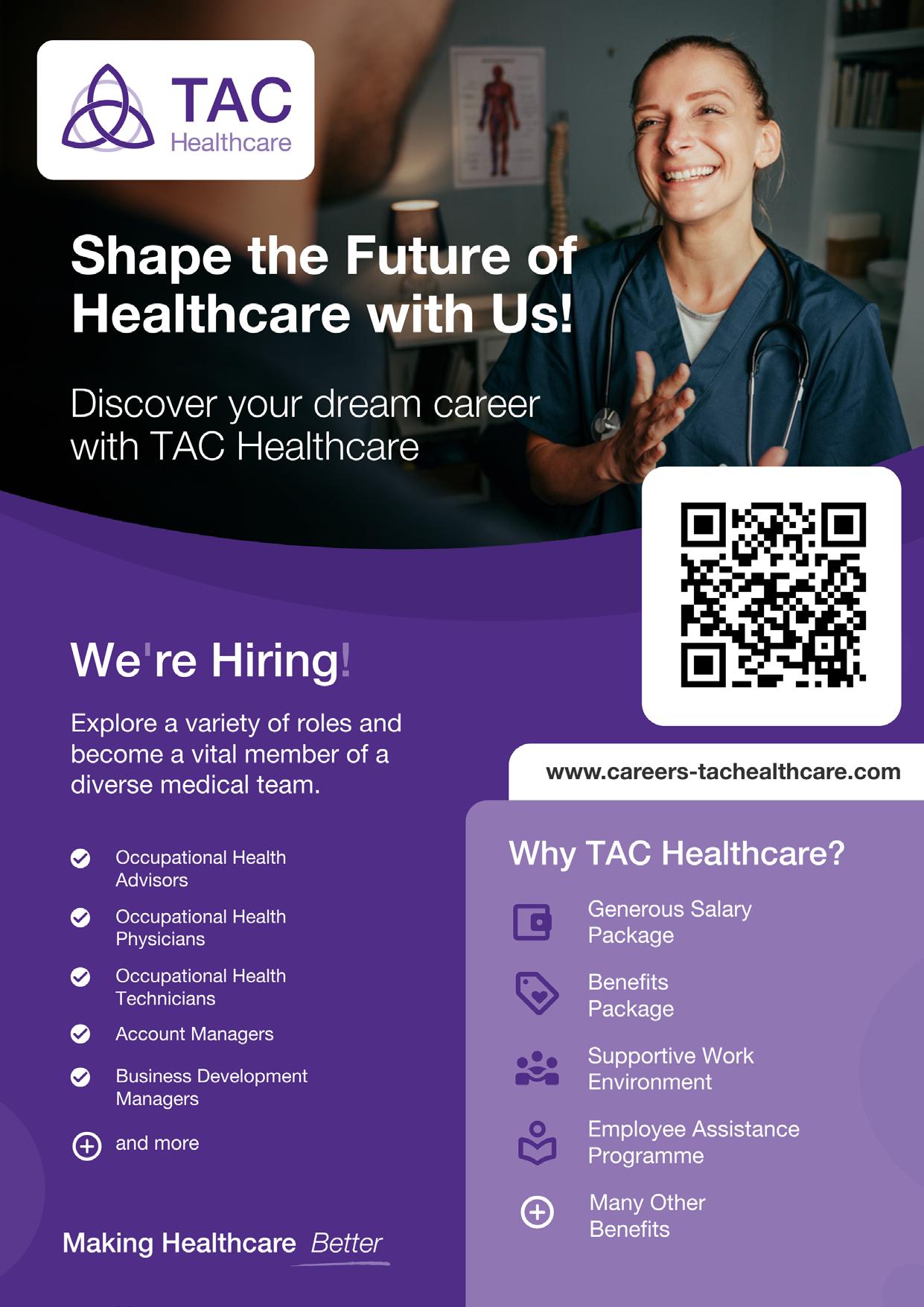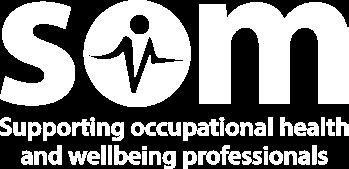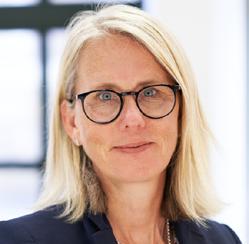Understand Pain: A New Perspective for Occupational Health
How personalised digital coaching can drive sustainability in workplace health
Making women’s & reproductive health a key priority
Upcoming webinar: Neurodiversity, the law and the workplace

Understand Pain: A New Perspective for Occupational Health
How personalised digital coaching can drive sustainability in workplace health
Making women’s & reproductive health a key priority
Upcoming webinar: Neurodiversity, the law and the workplace








Introduction by Dr Lanre Ogunyemi and Christina Butterworth
Latest SOM Publications
SOM Occupational Health Conference for Nurses in Wales
Understand Pain: A New Perspective for Occupational Health
How Personalised Digital Coaching Can Drive Sustainability in Workplace Health
Highlights from the American Occupational Health Conference 2025
SOM Central Southern Regional Group Spring Meeting
Lancashire and Cumbria SME Occupational Health Pilot - The Experience of OH One
Supporting occupational health of healthcare workers in Ethiopia
Supporting and empowering staff through the menopause
Making women’s and reproductive health a key priority
Spring statement response
SOM/FOM Occupational Health Conference
Occupational Health News
Upcoming SOM Special Interest Groups
OH Mentoring
Upcoming SOM Workplace Visits
SOM Professional Partner Membership
Neurodiversity, the law and the workplace
Upcoming SOM webinars
About the SOM

Dr Lanre Ogunyemi, SOM President

Christina Butterworth Chair, Faculty of Occupational Health Nursing
Following the Board meeting in March and the Faculty of Occupational Health Nursing (FOHN) Board in April, a strategic partnership was agreed. This followed a January away day where the Board with FOHN assessed how this would work best, and key principles. Benefits were seen for OH generally in SOM hosting FOHN activities, with FOHN maintaining its brand. FOHN members (many of whom are SOM members) will be encouraged to join SOM. Amanda Hinkley, as the new chair of FOHN, will support the process with SOM. FOHN will continue its functions, e.g. linking with the NMC, supporting nurses through accreditation, and being part of events such as with the RCN. SOM will host the FOHN website and develop a SOM/FOHN OH Nursing Group, reporting to the SOM Council. Comments and opinions are welcome and do let me know if you have any questions at president@som.org.uk
By Richmond Stace, Specialist Pain Physiotherapist & Multidisciplinary Pain Coach
Chronic pain is the number one global health burden. It affects more people than cancer, heart disease, and diabetes combined. Yet, it remains poorly understood across much of society, including in healthcare and the workplace. For occupational health professionals, this presents a significant challenge. Pain is invisible. It fluctuates. It doesn’t always follow expected patterns. And for the person living with it, pain can feel all-consuming – impacting mood, motivation, sleep, relationships, confidence, and ultimately, their ability to work.
So how do we better support people with persistent pain in the occupational setting? The answer begins with understanding what pain really is…
What is pain? Pain is what the person says it is, and where it is in their body, according to the definition by Margo McCaffery, which I learned in my nurse training in the 90s. This is a good start point because it validates the person’s narrative, which is vital for creating a caring collaboration. Within this collaboration, the opportunities for making positive change arise. Pain is personal and subjective. You cannot see pain or measure it well. So, you must listen to the person.
What’s is pain’s purpose? Pain, whether acute or persistent (chronic), is not just a symptom. It’s a lived experience of the whole person. Like hunger or thirst, it is a need state, asking for attention, care, and change. Pain isn’t demanding to be ‘got rid of’ – it’s asking for a shift. A shift in thinking, behaviour and living. Pain is shaped by biology, past experiences, beliefs, expectations, emotional state, context, and environment. When certain conditions come together, pain is felt. That means pain always has a purpose.
Is chronic pain maladaptive? A common view in healthcare is that chronic pain is “maladaptive” – it no longer serves a purpose. I don’t believe that’s true. This idea arises from the absence of visible damage or pathology. But pain is poorly related to these. We know this from decades of research. Persistent pain isn’t without meaning. When someone shares their story, you often hear the deeper needs behind the suffering. From their story we can clarify two essentials:
• What do you need to move forward?
• What goals are meaningful to you?
So, instead of waiting for your pain to go away to start living, you begin living now for things to get better.
Pain is not generated where you feel it. The place in your body where pain is felt – such as your back, neck, or knee – does not actually produce the pain. Modern neuroscience tells us that pain is generated by a dynamic interaction between multiple systems in the body: the nervous system, immune system, endocrine system, and autonomic system (Kiverstein et al., 2022). These systems work together like an orchestra, constantly predicting what’s going on both inside and outside of you as one unified experience. This ‘orchestra’ uses past experiences, beliefs, expectations, memories, emotional state, and context to make sense of the sensory input coming from the body and predict its meaning. It’s making best guesses about what’s happening for you. You don’t experience the world – or your body – directly. You experience a version of it that’s constantly being updated and adjusted.
This means pain is not simply about what’s happening in tissues. It’s about how your systems are predicting and updating predictions (learning) about the world – including your environment, your history, and your sense of self. Pain is deeply personal. It reflects your whole lived experience.
Part two coming soon…






SOM with the University of Addis Ababa is starting a programme to support occupational health of healthcare workers in rural and urban areas in Ethiopia. 160 Health and Safety officers will gain a clear understanding of occupational health risks, safety protocols, and preventive measures to protect themselves, improve service quality, and so improve the health of the population. Strategic advocacy to ensure impact across the health system will also occur as the project will collaborate with the Ministry of Health and the Oromia and Sidama Region Health Bureaus.
Dr Samson Wakuma, who is leading the project stated, “Healthcare workers are exposed to a range of occupational risks in Ethiopian workplaces. Providing training for these officers is crucial to equip them with the necessary knowledge and skills in Occupational Health”.
Risks include infections, unsafe patient handling, hazardous chemicals, radiation, psychosocial hazards, physical injuries, and inadequate personal protective equipment[1]. A recent study of Ethiopian public health facilities revealed that 36.5% of healthcare workers reported exposure to
occupational health hazards, with insufficient risk reduction measures and safety protocols in place[2].
It is a WHO and Ethiopian Government priority to improve the quality of healthcare service provided and the health of the population. SOM will offer technical support based on a previous project of health of health care workers in Nigeria, completed in 2025. The Nottingham University Hospitals NHS Trust will contribute expertise gained from the UK healthcare system.
This project is funded through the Global Health Workforce Programme, managed by Global Health Partnerships (formerly THET), which is funded by the UK Department of Health and Social Care (DHSC) for the benefit of the UK and partner country health systems.
Look out for updates as the programme progresses.
1] Kumie A, et al., 2016. Occupational Health and Safety in Ethiopia: A review of Situational Analysis and Needs Assessment. Ethiop J Health Dev. 2016;30(1 Spec Iss):17-27.
[2] Ayenew E, et al., 2022. Prevalence of Work-Related Health Hazard and Associated Factors among Health Workers in Public Health Institutions of Gambella Town, Western Ethiopia: Cross-Sectional Survey. J Environ Public Health.

By Dr Lara Shemtob, SOM Honorary Policy Adviser
Welfare reforms for people unable to work due to long-term ill health were announced in March by the UK government, and featured in the Spring Statement. Spending cuts of of £4.8 billion are predicted in 2029/2030 (£3.4 billion overall once £1.4 billion investment pledges have been accounted for). But, the focus must not rest solely on welfare spend - reforming the thresholds is unlikely to be the lever that gets people back to work. The real opportunity lies in the quality and design of support provided.
For most people, being in good work is good for their health. It is a social and economic win on both an individual and societal level if government’s plans to support people with long term ill health to return to work are successful. But many working age adults who are not in work are likely to feel unsure about their ability to work.
For policy changes around welfare to be successful they must be matched with effective support. WorkWell trailblazer sites have potential. They aim to move beyond cycles of ‘assessment’ and ‘reassessment’ and instead build comprehensive, responsive, and innovative support systems that work in tandem with the welfare financial support offering.
Occupational health expertise should be part of it –ideally early on. OH support is most valuable when there is scope for continuity of care and follow up so people feel there is holistic, long-term supportso:
1. Early access to occupational health expertise
• Decisions about health and work require timely, specialist input. Clinicians who can currently authorise fit notes should be able to recommend that their patients ‘may be fit for work, subject to an occupational health review.’
• Having easy access to OH is likely to help employers feel confident to support people who are returning from long-term sickness absence as well as advising organisations about preventative approaches to ensure that employees with health conditions remain at work. Forward thinking employers leverage
OH in a preventative capacity, helping avoid long term sickness absence in the first place.
• The way that OH expertise is deployed in supporting welfare claims must be deepened. Data gathering alone, to inform one-off eligibility checks and gatekeep benefits is not enough.

• Expert support provided to welfare claimants should be used beyond assessment, to provide proactive, personalised management plans that address individuals’ health needs while actively building their work potential.
2. Continuity and follow-up
• Continuity and follow-up are powerful tools when OH is used, both within an organisation and within the welfare system. It strengthens trust, improves outcomes, and maximises the impact of interventions over time.
• Work and health are dynamic. One-time assessment only offers a snapshot and fail to account for changing circumstances. It is rarely helpful to be rigid in approach to assessment of fitness to work. Instead, thinking broadly about the strengths and skills someone can offer considering their health and functioning can lead to opportunities to remain in work with changes and adjustments to their role.
• Regular follow-up, at intervals tailored to the individual, is the only way to ensure adjustments are made as health conditions and life situations evolve.
• There is also a need for more healthcare professionals outside of OH settings to ask about patient’s views on work and to help patients to work in an effective way.


SOM and the NSOH are hosting a free mentoring service for those considering a move into a career within Occupational Health. The service is committed to fostering growth, instilling confidence and nurturing success. Our mentors are trained and experienced professionals within the multidisciplinary team of OH.
Use of the mentor service will enable you to explore and understand a career in Occupational Health.
We will help you to decide if this is the career for you and if so, support your transition with all the tools you need.
From background reading to CV and interview skills, our mentors provide guidance individually, in group sessions or both.
As a mentee you will receive a set number of sessions with your choice of mentor plus access to group mentoring.


Benefits of mentoring include:

• Provision of an understanding of OH.
• Reliable information and resources to prepare and upskill.
• Identifying transferable skills.
• An understanding of the task requirements within OH and varying delivery mechanisms.
• Signposting to shadow opportunities.
• Building confidence for a move.
• Widening professional networking within the specialty with the introduction to membership and networking groups.
• Advice on further training and education within OH.
• Improving the chances of obtaining a role in OH with CV and interview skills.
Lauren








SOM plans regular workplace visits for its members as part of the benefits of being a member, offering hands-on learning and insight into industry-specific occupational health strategies.
In April, members visited the Quarry Bank Mill in Cheshire. The experience included a guided tour of Apprentice House and the mill, and delegates had the opportunity to ask questions.
For access to our workplace visits, join SOM as a member.








JCB Factory Tour
Monday 12th May, Staffordshire
Tour of the Shepherd Neame Brewery
Wednesday 4th June, Kent
Tour of Thatchers Cider Farm
Wednesday 2nd July, Somerset
Tour of Bremont Watch Manufacturing Centre
Wednesday 3rd September, Berkshire
Factory Visit to World of Wedgwood & Afternoon Tea
Wednesday 8th October, Staffordshire
Work in HR, Wellbeing, Occupational Health Procurement, Employee Assistance or responsible for workplace health?
SOM Professional Partner Membership is for professionals who wish to keep up to date with the latest occupational health resources and guidance. Membership offers knowledge, tools, and connections to help you do the best job you can for your employer and your clients in health and work – now and in the future. It is not open to occupational health or other health professionals.
Benefits include:
• A curated monthly update with key resources and guidance
• Discounts on SOM events including up to 6 free webinars a year
• Exclusive workplace health offers
• Invitation to the SOM Christmas drinks and Awards
Whether you work in HR, or are a professional navigating health challenges,
SOM’s Professional Partner Membership helps you keep up to date with key issues,

from Long COVID to mental health at work.
With SOM’s support, and the backing of a community of nearly 2,000 occupational health professionals around the world, Professional Partner Membership will boost your confidence and skills, helping you in your work and career.
Cost – £60 / year (saving you over £120 on webinar registration fees alone). Our membership year runs from January to December. If you join mid-year, you will pay a pro rata rate.
Membership shows a commitment to workplace health and a wish to understand current best practice; but is not an endorsement by SOM of the services you may offer and does not provide SOM membership voting rights.
For further information, please contact membership@som.org.uk

Tuesday 3rd June, 12.00-1.00pm
£35 Non-members
It is estimated that 15 to 20% of the UK population is neurodivergent, translating to around 1 in 7 people (13 million people). These statistics mean that most workplaces have a significant neurodivergent workforce, whether they are aware of it or not.
Awareness around neurodiversity in the workplace has gained significant momentum in recent years. Many individuals do not receive diagnoses until late in their careers, or, even with a diagnosis, they may choose not to declare it to their employer or to their work colleagues. This can create significant issues from a legal, reputational and cultural perspective. We have seen these exemplified in employment tribunal claims relating to neurodiversity discrimination; they often arise from a basic misunderstanding between the neurodivergent employee and their manager, leading to a deterioration of their relationship and resultant dispute which could arguably be prevented through effective management, awareness and training.
In this webinar, Emma Bartlett (Partner and employment lawyer from CM Murray LLP), will explore the following:
• What is neurodiversity and how does neurodiversity fit into our disability legislation under the Equality Act 2010?
• A review of the case law in this area and lessons to be learned.
• Practical tips on recruiting neurodivergent staff.
Emma Bartlett is a Partner at CM Murray LLP, specialising in employment and partnership law, and leads the firm’s D&I initiatives. She advises on a wide range of employment matters, with expertise in discrimination, whistleblowing, bonus disputes, trade union issues, and high-value litigation. Emma represents employers, senior executives, partners, LLPs, and trade unions across sectors including financial and professional services, biotech, media, and start-ups. A skilled litigator, she frequently handles High Court and tribunal cases, including interim injunctions. Emma regularly publishes and comments in the media, including BBC Radio and the national press, and serves as general editor for Thomson Reuters’ Employment Precedents and Company Policy Documents. She also hosts podcasts on board diversity and legal issues affecting women in sport.
Chaired by Professor Nancy Doyle
Register Here


View our catalogue of public webinar recordings here.
View the full list of upcoming SOM webinars here.
• Tackling Sickness Presenteeism in Organisations: What Can Be Done? FREE For All
Friday 16th May, 12:30–1:30pm – Register here
• Summary of an HSE Inspection of a Small Independent OH Consultancy: The Good, the Bad and Lessons Learnt, sponsored by Orchid Live FREE SOM Members; £35 Non-members
Monday 19th May, 1-2pm – Register here
• The Impact of Shift Work on Health, sponsored by Orchid Live FREE SOM Members; £35 Non-members
Tuesday 20th May, 4-5pm – Register here
• FOM/SOM Engagement in Improving Health and Work Nationally FREE For All
Monday 2nd June, 3:30–4:30pm – Register here
• COVID-19 Public Inquiry - The experience FREE For All
Thursday 5th June 12-1pm - Register here
• Global Advocacy for Occupational Health FREE For All
Wednesday 11th June 4-5pm - Register here
• Sex discrimination, the Equality Act and the Supreme Court FREE SOM Members; £35 Non-members
Tuesday 24th June 12-1pm - Register here